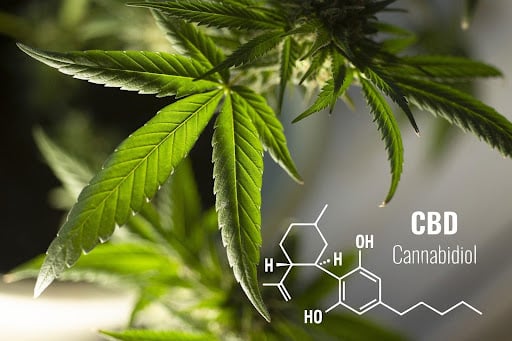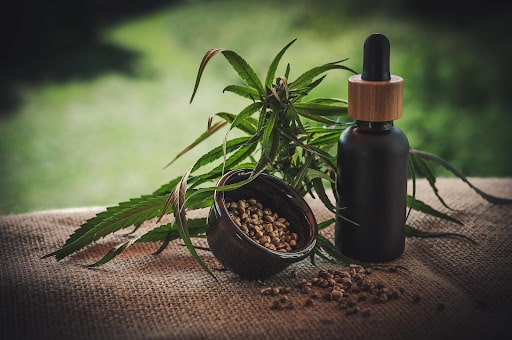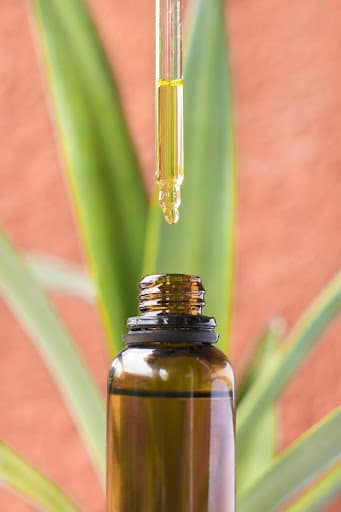Cannabis sativa contains a substance called cannabidiol, also known as CBD. Cannabidiol (CBD) can be extracted from both hemp and marijuana. Since hemp is legal federally, it is a more popular source of CBD. CBD is a neutral chemical that has been used for thousands of years. It was only within the last century that it became a controversial chemical.

CBD History
Since 1937, marijuana has been illegal in the USA. It also became the main focus of the “War on Drugs.” Recently, politicians have started to turn in favor of legalization thanks to public opinion changing on it. Currently, 19 states permit the recreational use of marijuana, and CBD and hemp are federally legal.
CBD wasn’t always controversial. Hemp and marijuana, and by its nature, CBD, were widely used for industrial and medical purposes centuries ago.
First Use
According to records, China is where the cannabis plant was first used medicinally. Emperor Cheng Neng made the first CBD cup of tea in the year 2737 BC. Allegedly, the tea was used to treat rheumatoid arthritis, malaria, and gout. Improved memory and brain function were observed in those who drank this tea over time.
Throughout history, the plant has reappeared in various cultures and parts of the world. For years, Queen Victoria used the plant to treat menstrual cramps. She realized the benefits CBD could have for pain management and relaxation.
According to ancient Egypotolgists, the ancient Egyptians would frequently use CBD for medical purposes. It appears ancient Egyptian doctors gave cannabis to patients to deal with fever, pain, and even glaucoma.
Modern History
In the 1930s, Robert S. Cahn, a British chemist, discovered the first individual cannabinoid. Cannabinoids’ official definition is the class of lipophilic molecules that interact with the body’s endocannabinoid system (ECS). There are several cannabinoids found in the marijuana plant, such as THC, CBN, and CBD.
CBD Stigma
Today, some people still think CBD can be used as a drug to get them high. This is not true. CBD does not contain any psychoactive properties. It has several reported health benefits, but nothing in CBD will cause any sort of high or a “trip.” Oftentimes, individuals have trouble differentiating CBD and marijuana, which is a reason why there has been a stigma toward CBD for so long.
CBD was first utilized for medical purposes by Americans in the 1900s, but as time went on, restrictions were put in place. Hemp, marijuana, and other related cannabinoids were all classed as Schedule I drugs under the 1970 Controlled Substances Act in the United States. This meant that it was thought to have no medicinal benefit and be highly addictive.
CBD is not addictive and may have several health benefits. Regardless, these substances were totally banned in the United States until some advocates started making progress in California, where hemp was legalized for medical use in 1996. This started to change the national conversation around the issue and got things moving in the direction toward CBD being fully legalized.
CBD Legalization
Scientists were able to determine that THC, not CBD, was responsible for the psychoactive effects of cannabis by analyzing its stereochemistry. It was discovered that CBD and the medicinal properties of the plant were closely connected. As a result of this research, CBD was deemed safe for medicinal usage.
CBD was illegal at a federal level in the United States all the way until 2018. The Agriculture Improvement Act of 2018 was passed to allow businesses to begin marketing CBD products and legalize the industrial farming of hemp. Hemp contains much higher levels of CBD than THC. THC is the chemical in weed that gets people high. This is why hemp has been legal at the federal level for the past four years. CBD has been deemed safe and can be used in all 50 states.
CBD Research
The advantages of cannabis plant cannabinoids, particularly CBD, have become more studied over time. There have been several scientific papers released that highlight the possible advantages of CBD for certain ailments and/or describe its safety. Through thorough research and experimentation, the medical benefits of CBD are being discovered. This is especially true for individuals with Parkinson’s disease, arthritis, or seizures.
The endocannabinoid system, which CBD activates, allows it to have a variety of effects on the human body. The endocannabinoid system is used to control the metabolism, promote sleep, control the stress response, and send pain signals to the brain.
Due to its capacity to engage with this centrally-regulating endocannabinoid system, CBD could have a wide range of applications. More research needs to be done on CBD to find out each and every benefit it may possess. It has had promising results in many studies, but because it had long been classified as a Schedule 1 narcotic, no one could study it from 1970 up until the last few years. However, the World Health Organization reviewed CBD and stated it saw both health benefits and no potential for abuse.

CBD Benefits
Inflammation Reduction
According to research, CBD could lessen inflammation through influencing the activity of endocannabinoid receptors in the body. The inflammation-reducing properties of CBD can inhibit arthritis symptoms which include stiffness, inflammation, pain, and loss of motion. There have been a large number of individuals suffering from arthritis who have vouched for CBD’s anti-inflammatory properties. Of all the CBD benefits, inflammation reduction had to be listed first because that is an element that creates health benefits elsewhere. Inflammation reduction is crucial in many health issues.
Boost Immune System
A significant percentage of the immune system is located in the GI tract, which contains a substantial amount of innate and adaptive effector cells as well as a substantial number of organized lymphoid tissues. The collection of both good and bad microorganisms found in the intestines, known as the gut microbiota, is crucial to the body’s ability to mount a balanced immune response.
Intestinal permeability, gut microbiota dysbiosis, and a compromised intestinal immune response can all be caused by excessive gut inflammation. CBD could fight this as some studies have shown it could stimulate a healthy intestinal inflammatory response.
Anxiety Relief
Perhaps the most mentioned and sought-after use of CBD is to reduce stress. Overcoming anxiety can be tough for many Americans, and they may not want to have to rely on prescription drugs.
Studies have shown that CBD can reduce anxiety and stress. In a 2017 study published in the Brazilian Journal of Psychiatry to gauge their degrees of anxiety, 57 men participated in a mock public speaking test. Before their talks, some people received a placebo, while others received CBD. Compared to those who got the placebo, individuals who received 300 mg of CBD reported much less anxiety during the exam.
Some CBD users have reported finding it easier to dismiss irrational thoughts. One individual used the example of how, instead of overreacting to a sternly worded email, he was able to more easily recognize that this would do him no good and move on with his day. People with anxiety know how it can be when one thought or event can send their brains down a rabbit hole of negative thoughts. As CBD takes the edge off of users’ anxiety, it could help them stay focused on the things that matter.

Improved Skin Health
The leading causes of common skin issues are inflammation and damage to the epidermis. Because it is a potent antioxidant and has anti-inflammatory properties, CBD could be a useful substance in skin care. Some studies show that CBD helps regulate oil production and keeps skin from getting dehydrated.
CBD skin care products come in many different forms. There are lotions, oils, face masks, sprays, and even moisturizers that contain CBD.
Managing chronic pain
Several studies have shown that CBD can reduce chronic pain. Lots of standard prescription drugs can reduce pain, like Vicodin, Codeine, and Hydrocodone, but all of those can come with significant side effects and addiction issues. On the other hand, CBD is non-addictive and its side effects are rarely reported.
A nice benefit of CBD over pain pills is that it comes in many different forms. CBD can be applied through lotion, oils, edibles, or pills. Additionally, CBD does not require a prescription for a doctor. CBD can be bought online, from local stores, or at some pharmacies. It can be cheaper than traditional prescription painkillers.
Promoting sleep
Some clinical studies suggest that CBD is a sedative drug, but further research is needed in this area. In a small study, CBD did have a substantial impact in helping patients with Parkinson’s disease get a good night’s sleep by helping them manage REM sleep behavior disorder symptoms. Before taking CBD, some patients had the disorder every day of the week, and it was reduced to 0–1 times a week. Perhaps more funding will go toward studies in this area so the benefits or lack there-of are more clear in the future.
Protecting cognitive health
As stated previously, CBD has been shown to have anti-inflammatory properties. These can help the brain as well as other areas of the body. Many preclinical studies suggest CBD can be beneficial against horrific diseases such as Parkinson’s, Alzheimer’s, and multiple sclerosis. Neuroimaging studies have shown that CBD can induce significant alterations in brain activity patterns during both a resting state and while in strenuous thought or focus.
Conclusion
CBD seems to be safe to use as there have not been any reported CBD deaths in the United States. CBD could have various health benefits, is fully legal in the United States, and is easy to buy. It can be tough to speak on all of the potential benefits of CBD because studies on the subject are still so new. There have not yet been long-term studies showing the effects of CBD on individuals over many decades. Hopefully, more research will continue to be done so the medical community can understand if the benefits of CBD are true and if there are any risks associated with it.






0 Comments